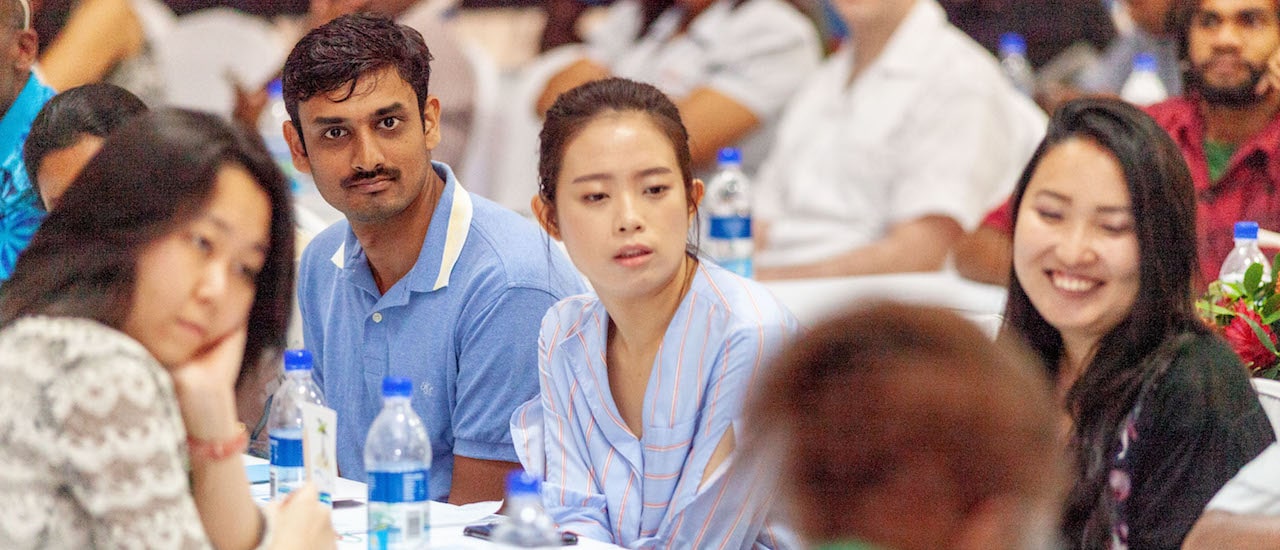My name is Gustavo Babo, I’m from Brazil and I’m a Law and Political Science student. One of my biggest interests is to understand the best way to create national and international policies related to the Internet and other technologies such as Artificial Intelligence, IoT, and Blockchain. Having participated in the IGF as a 2018 Youth@IGF Fellow has enhanced my perspective on the future of all these technologies. Enjoy my opinion!
Throughout the IGF event, in all the panels I have attended, I have noticed one thing in common: the feeling that the human being has had less-and-less control over technology and its implications. The unpredictable factor for the future of some emerging technologies that have developed very rapidly is a situation that divided the event into two perspectives: some of those present believe that technology will bring to the world many positive situations and we need to collaborate with its acceleration to any cost. However, there are others who fear the speed and lack of control of the impacts of these technologies – which are really transforming the world – believing also that the human being may be tracing a disastrous path for itself, since we no longer control the consequences of the development of the technology.
A situation that supports these different perspectives well and the uncertainty of how people might proceed in the face of the accelerated development of technology is the speech of the president of France at the event, Emmanuel Macron. The president also shared the same uncertainties discussed there in the forum, always on the wall and saying that we need to promote the growth of technologies in a healthy and positive way and we must try to prevent the second pessimistic perspective from happening. Macron’s solution to this is a greater government approach and possible intervention through regulations and public policy. (You can read his speech here.)
However, Macron is not necessarily right. Sharing experiences in the forum with different countries of the world, I realized that there are innumerable perspectives regarding the future of technology in each country. Thus, it is possible to say that the human being does not yet know the best way to lead the emerging technologies, there are many opinions about these technologies that imply different results, many still unknown, as we can see in a global analysis of countries that adopt more or less restrictive regulations and policies. Therefore, we can conclude that we do not yet know how to regulate (or not regulate) technology and how best to create policies. However, at least we can say that we already know what is the ideal model to discuss these technologies, which is the multi-participatory or multistakeholder model adopted by the Internet Governance Forum. This is exactly what was made clear to me during the experience of attending the forum as an Internet Society Youth@IGF Fellow. The model that the forum works is absolutely exceptional in what it proposes and it is exactly in this style of discussion that the world will discover what to do with all this.
The Multistakeholder Model
This is the model used by the UN forum to discuss the different perspectives, regulations, and policies of the Internet and emerging technologies. The multistakeholder model consists of a discussion involving representation from all interested sectors: the private sector, the government sector, the academic community, the technical community, and civil society. These actors participate through an inclusive and egalitarian basis. In this way, the interests of multiple parties are met and the results of the discussion can be very positive and balanced. To be sure, this is the model of discussion we must follow in order to understand the best way to conduct technology from a national or global perspective. We still do not know how to regulate, but it is clear that with this model of discussion we will have the best results, since, for example, discussions between engineers alone or between politicians have already proved to be very unproductive and unrealistic. We need to move this model to other discussions, regulations, and policymaking that involve technology as quickly as possible. As I said, we still do not know how we should regulate technology and create public policies. In this way, we should discuss how to do this – using this model. So, one day we will know how to do it in the best way. I hope it’s not too late!
Young people are one of the categories most affected by these technologies and Youth@IGF promotes their approach to the discussion environments. The program gives form and voice for young people to contribute to the important debates. In addition, the program also serves as training for hundreds of young people who will one day move from Youth to You. We need to think in the long term to have more and more qualified people around the world to participate in debates and decisions in the world of technology.
Thank You(th)!
Read “We Won’t Save the Internet by Breaking It.”
Image from APrIGF 2018 ©Frederic Courbet/Panos Pictures
